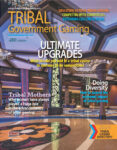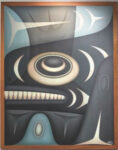
At last year’s Global Gaming Expo, I had the honor of serving on the Native American keynote session and posing questions to a distinguished panel of tribal leaders about the state of tribal gaming. Always one of the best-attended sessions, the participating leaders-Ernie Stevens, NIGA chairman; Gay Kingman, a member of the Cheyenne River Sioux; Kevin Leecy, chairman of the Bois Forte Band Of Ojibwe; Mark A. Macarro, chairman of the Pechanga Band of Luiseno Indians; Stuart Paisano, councilman and former governor of the Pueblo Sandia Tribe; George Skibine, acting chairman of the National Indian Gaming Commission; and Mark Van Norman, executive director of NIGA-were, as usual, very forthcoming and generous with their opinions and information provided to G2E attendees.
There was one question, however, that sparked some debate and stirred emotion and controversy. I asked the group whether the image of Native Americans was becoming too entwined with that of tribal gaming.
“Yes and no,” Leecy responded. “Yes, because it’s funny when I hear some people talking about where they are going to go. They say, ‘I’m going to go to Mystic Lake.’ That’s one indication where we tie tribal casinos a little bit too much to the Indian nations. But it’s not a bad image because Indian gaming is doing good things for the community.”
Since that time, there have been several events that have again highlighted the fact that many news organizations link tribal gaming and the overall Native agenda very closely.
Take, for instance, the meeting that President Barack Obama held with tribal leaders soon after he took office, fulfilling a campaign promise to work closely with Indian Country. There were several references in the mainstream media about Obama meeting with Indian gaming leaders, although those attending the meeting represented a broad cross-section of Indian Country-more than simply leaders of tribes that happened to be in the gaming business. And of course, the comments on the news channels that linked gaming with Native Americans were always made in a pejorative manner.
Leecy is correct that Indian gaming is doing good things for the communities, but are we getting that word out efficiently enough?
I always say that tribal gaming is the best story in the casino industry, but not enough people know about it. When pressed and they think about it-like when California has propositions on the ballot on Indian gaming issues-we do a great job. It doesn’t take much to sell the public on the good things about Indian gaming if we have their attention. But too often, the negative stereotype holds sway and not much is done to disabuse people of the notion that has been planted in their heads by the mainstream media.
And it all starts at the local level. In this issue, we hear about how Indian gaming in Oklahoma has really transformed the state-first by diversifying the state’s economy and making it less dependent upon the gas and oil industry; and second by fundamentally changing the way of life in the rural areas of Oklahoma, giving all people access to better medical facilities, fire and rescue units and adding to the coffers of local charities.
And of course, we don’t mention the jobs and infrastructure improvements, as well as the lesser dependence upon the goodwill of state and federal governments.
Tribes are naturally humble when making charitable contributions and giving aid to those less fortunate. That’s admirable, but it’s also important that the non-Indian community know about this unselfish giving.
All these things make it important to get the good word out about Indian gaming. If indeed tribes are going to be inexorably linked to the one of the powerful engines of economic development in Indian Country, we might as well make sure they get all the facts and not depend upon the hearsay and stereotypes that often characterize media coverage of tribal gaming.

















